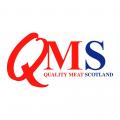Over 2.7 million head of livestock were sold through Scottish auction markets in 2019, with a large proportion destined for Scotch Beef, Scotch Lamb.
Neil Wilson, Executive Director of the Institute of Auctioneers and Appraisers in Scotland (IAAS) highlights that Quality Meat Scotland’s (QMS) Auction Market Assurance Scheme plays a vital role in ‘whole chain’ consumer assurance with specific codes of practice for handling and selling of livestock developed as the scheme has evolved.
“Whether it be the small traditional facilities situated on the islands or the large mainland auction markets, they are all part of the scheme and play a key role in minimising the stress involved to livestock which are traded.”
Joining the QMS Auction Market Assurance Scheme when it was established in 2003, Lawrie and Symington has a long and proud history spanning more than 150 years in Scotland’s red meat supply chain. Constituted in January 1862, the firm has developed to become a major marketing force selling prime, store, and pedigree livestock from its centres at Lanark and Forfar.
“We are proud to sell some of the best quality livestock in the country, produced to the highest of welfare standards,” says Willie McCulloch of Lawrie and Symington.
“Being members of the QMS assurance scheme enables us to play our part in the Scotch assured brand and helps promote the whole of life assurance scheme that exists.”
With just under 10,000 farms in Scotland operating under the QMS beef, sheep and pig assurance schemes, which this year celebrates 30 years in operation, auction markets across the country recognise the importance of whole chain assurance, with all 26 markets operating under the scheme.
“It is essential we are part of the scheme,” highlights Mr McCulloch. “We are a key part of the whole chain jigsaw and farmers can confidently sell and purchase Scotch Potential Eligible (SPE) and Scotch Assured (SA) stock through Lawrie and Symington knowing they will continue to carry a premium and broaden the market scope for the Scotch brand. This helps make stock appealing to more buyers and, as a result, maximises the price.
“We see very few animals come through the markets that are not assured, which shows the value of the scheme to our farmers.”
Kathryn Kerr, Head of Brands Integrity at QMS adds: “To carry the Scottish red meat industry’s three premium brands Scotch Beef PGI, Scotch Lamb PGI and Specially Selected Pork, livestock must have been born, reared and slaughtered in Scotland and spent their entire life on QMS Scotch Assured holdings.
“Whole chain assurance underpins the integrity of these premium brands and provides reassurance to consumers of provenance, highest standards of production, animal welfare and wellbeing, to deliver a quality eating experience.
“This whole-of-life brand eligibility is delivered by six assurance schemes: Cattle and Sheep, Pigs Auction Market, Haulage, Processor and Feeds.”
To be part of the scheme, markets receive a physical inspection each year, carried out by Lloyds Register on behalf of QMS. The assessor visits the market during a sale day and inspects a number of areas – from biosecurity and animal welfare, to records and traceability.
Mr McCulloch highlights how the yearly assessments help the team at Lawrie and Symington ensure best practice and that facilities and administration continue to meet the standards.
And with thousands of livestock passing through the facilities at both Lanark and Forfar each week, the whole team - from office staff to fieldsmen - have a part to play.
Mr McCulloch explains; “Our team in the office is required to maintain an accurate and current record of stock which is consigned as Scotch Potential Eligible, Scotch Assured, Farm Assured (FA) and Non Assured (NA), based on updates of farm assurance membership which are received on a regular basis from QMS approved sources.
“All animals to be sold must be clearly and correctly identified prior to entry into the sale ring, during the bidding process and on sales invoices.
“In the penning area, our yard staff have an equally important role ensuring all stock coming in and out of the markets are booked and penned accordingly, as well as ensuring that any animal welfare matters are dealt with as quickly and as efficiently as possible.”
Auction markets work closely with other members of the scheme to ensure Scotland’s red meat industry keeps its world-class status.
Mr McCulloch concludes: “Not only do we work closely with farmers, we are also in day-to-day contact with the wider industry and stakeholders, making sure that we uphold the welfare, environmental and traceability credentials.”






Comments: Our rules
We want our comments to be a lively and valuable part of our community - a place where readers can debate and engage with the most important local issues. The ability to comment on our stories is a privilege, not a right, however, and that privilege may be withdrawn if it is abused or misused.
Please report any comments that break our rules.
Read the rules hereComments are closed on this article